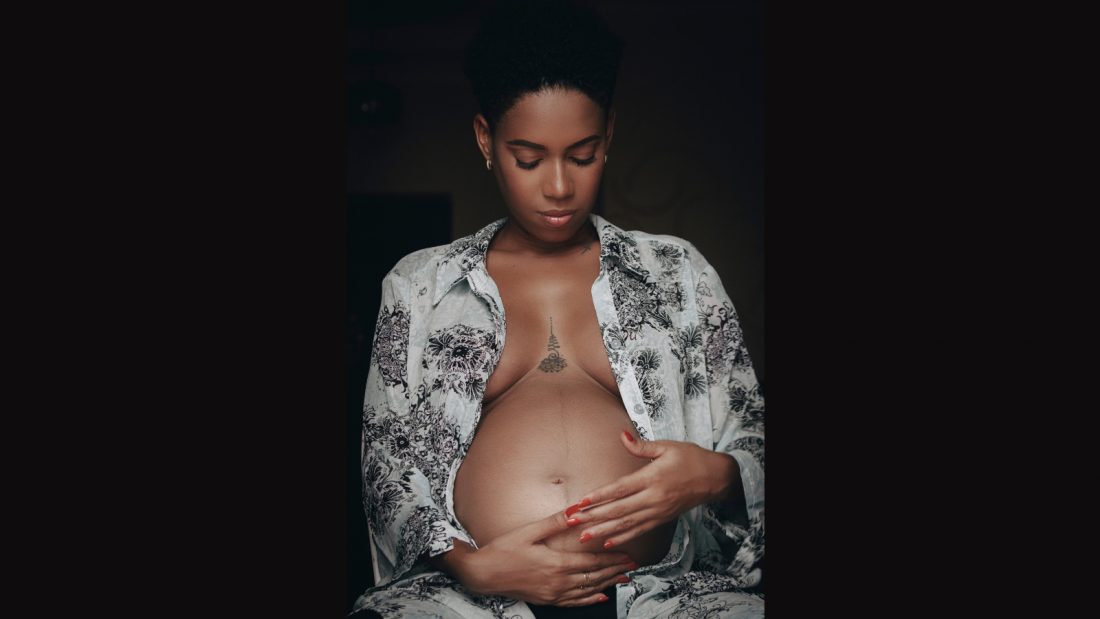Health inequalities and racial bias have been singled out as being factors on why Black women have a 43% higher risk of miscarriage than white women in a new study.
Research from The Lancet, a peer-reviewed medical journal has highlighted the health inequality in an ever-growing list that predominantly affects Black women. It is estimated that one in five pregnancies end in a miscarriage, however, the study shows that this number rises for Black women who have a 43% higher risk of miscarriage than white women.
Readers may not be surprised at this news, Melan Magazine has covered a number of health issues that affect Black women more than others, but it’s another thing to have the anecdotal beliefs confirmed in a medical study. One woman who is not surprised at this shocking statistic is Natasha Necati, a Black woman from Essex.
Necati, now a mum, initially suffered a heartbreaking eight miscarriages over the course of twelve years. In an interview with BBC News, she said: “One of the miscarriages was at 19 weeks, you pass the 13-week mark…everything’s supposed to be okay, no one tells you that your waters are going to break early.”
What is the vital reason why Black pregnant mums should do this survey?
A common theme in these health inequalities is the fact that people are not listened to. This is the case with Natasha. “There’s been times where I felt like I’d ask a question, or I’d say how I was feeling or explain a situation and it’s kind of just got blown off to the side.”
“I don’t know whether it comes down to a race thing or whether it is down to a female thing…It is frustrating because we have been told about the problem, but we haven’t been given a solution.”
“A contributing factor to [these women] experiencing poorer treatment and outcomes is communication.”
Dr Karen Joash, a spokesperson for Royal College of Obstetricians and Gynecologists (RCOG) condemned the situation. She said: “It is unacceptable that Black, Asian and minority ethnic women face worse health outcomes than white women, especially when it comes to maternity care.” She added: “A contributing factor to [these women] experiencing poorer treatment and outcomes is communication. Ineffective communication from medical staff can hinder consultations, negatively influence treatment options and can ultimately result in these women avoiding interactions with healthcare professionals.”

“It is time to say that we should make every contact count for these women too – let’s continue to strive to educate, care with empathy, seek to understand, break down racial barriers and change the health outcomes of these women and their families. Although the problem is complex every action can make a difference.”
When it comes to fibroids, are we being a little too hasty by opting for surgery?
“The reasons for why these health disparities exist are complex and multi-dimensional and include implicit racial bias, a lack of high-quality research and a large gender data gap.”
“The reasons for why these health disparities exist are complex and multi-dimensional and include implicit racial bias…”
It’s clear that more research needs to be done to look further into the reasons why Black women suffer more when it comes to miscarriages. RCOG points to increased understanding of how these groups present and respond to medical conditions and treatments. Another factor to investigate are potential biological factors that may be contributing to the higher risks that Black women face compared to white women when it comes to maternal care and their overall health.
Black women have lowest chances of having a baby through IVF: new report
In their statement, RCOG said they are: “… committed to working with the UK government, the NHS and clinicians to better understand and recognize the presence and impact of this unconscious bias in order to eliminate health disparities in the UK.”
Let’s hope they stand by their words. In the words of Natasha: “To lose a baby and then have to bury a baby, that was just unimaginable.” Black women shouldn’t suffer more than others simply because no one is listening to us or due to racial bias.












